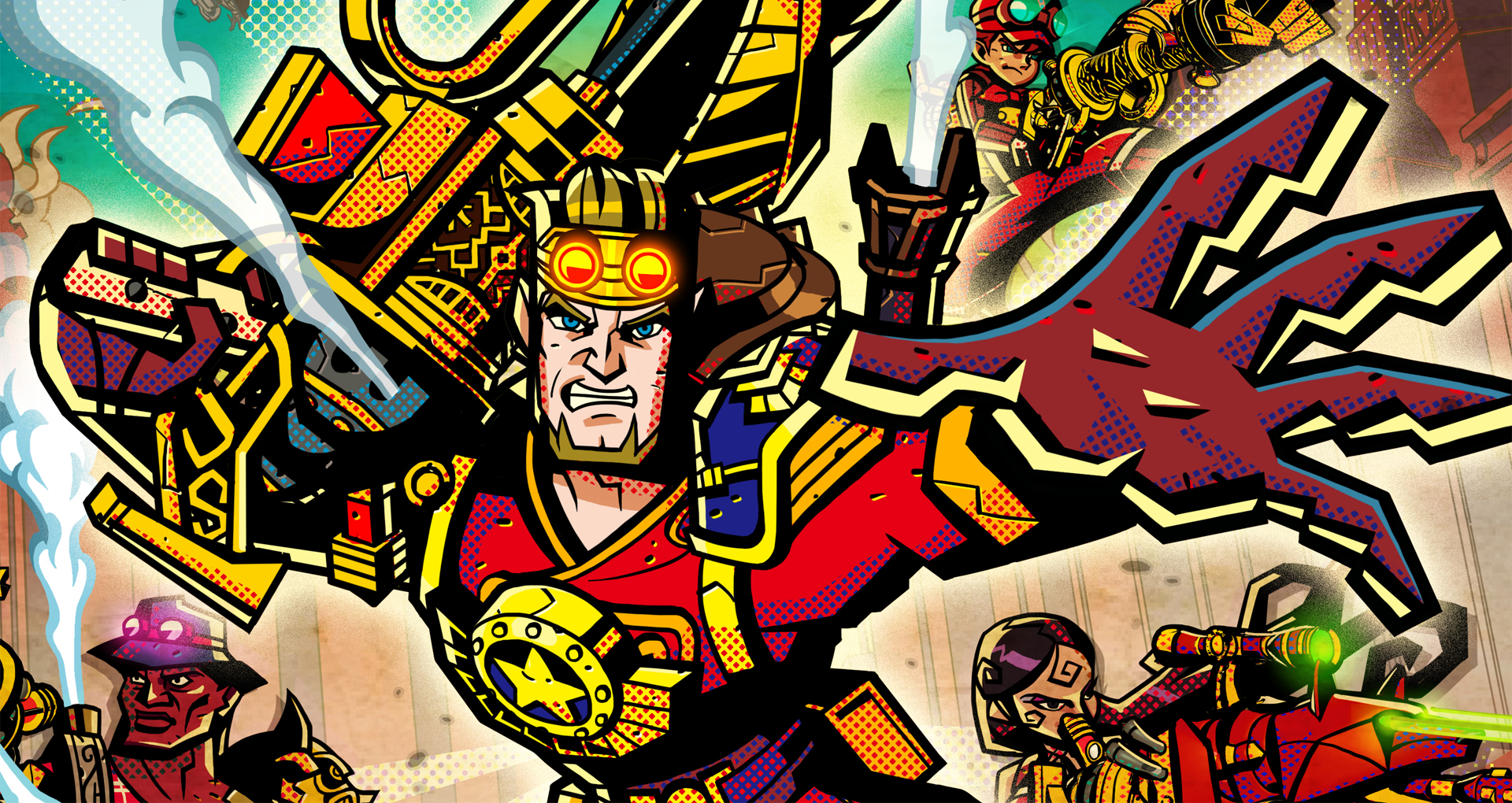12DOVE Verdict
This fresh take on tactics games adds a bit of steam, folklore, and shooter action to the turn-based combat. Plus, it’s hard to pass up the crazy premise of Abe Lincoln fighting aliens.
Pros
- +
Turn-based strategy rarely this action-packed
- +
A unique world full of memorable characters
- +
Just one more turn will be said many times
- +
Abraham Lincoln has never been more of a badass
Cons
- -
A couple maps can be real slogs
- -
Watching aliens take their 100th turn
Why you can trust 12DOVE
Code Name S.T.E.A.M.'s Japanese subtitle is Lincoln vs. Aliens, and it's hard to think of a more fittingly ridiculous name. A mysterious, deadly force of Lovecraftian beasts are destroying the steampunk utopia of the faux-Victorian era world. A team of elite, steam-powered warriors are humanity's only hope, all handpicked by the surprisingly alive Abraham Lincoln. All-American heroes like Tom Sawyer and John Henry all have their own special strengths on the battlefield, and all are uniquely fun thanks to the engrossing gameplay.
The diverse S.T.E.A.M. team's battle with Earth-conquering aliens requires shooting many invaders in the face, and those headshots really count. Sure, the genre's turn-based structure and map grids are there as expected, but the combat is more like that of a third-person shooter. Aiming at an alien's weak points means more damage, and a quick trigger finger will beat a defensive overwatch attack if you're fast enough. The game rewards not just skillful planning, but also execution.

The ‘steam’ in the title isn’t just for show, by the way. Every step and action consumes a fighter’s limited amount of steam energy, which further enforces the need for tactical smarts. And the oddball characters each have unique weapons that only they wield, as well as special one-off attacks that play up their personalities. For example, Tom Sawyer uses his slingshot to lay a half dozen landmines, just as Mark Twain would’ve wanted.
Additionally, the dynamic shooting pours gasoline onto the 'just one more turn' fire at the game's heart. A carefully executed round is long enough to feel tactically deep, but goes by just fast enough that you'll quickly want to see how the next round plays out for your squad. Followed by the next round, and the next, and the next. It's far too easy to drop hours into this game without realizing it.
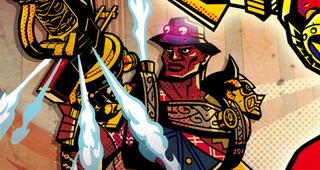
The added focus of the over-the-shoulder camera also assists in the immersion. You only see as much of the map as the team, avoiding the typical far-off, isometric view of tactics games. The approach to camerawork is part of the impactful action, but it also makes exploration feel more personal and vital to your success. Each map has a ton of trinkets and in-game cash to collect, which unlock weapons and armor, all quite necessary because S.T.E.A.M. ditches a traditional leveling system. Better equipment is the only way to make your characters stronger, removing any needless experience grinding.
The only real downside to the lively camera technique is that the you'll be spending a lot of the campaign watching aliens make their moves. After the action-packed gameplay during your go-round, it makes watching the computer control the board is lackluster by comparison. The enemies' turns can't be skipped, and for sensible reason. A large part of the strategy comes from reacting to alien movements. However, with no way to even speed up their turns, you'll occasionally be gritting your teeth while you wait for the AI to finish walking around already.
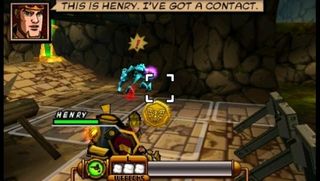
For all the whining about waiting, nearly every mission in the game pulls you further into its world. There's no avoiding boxy designs on grid-based maps, but each area looks great, feeling pleasingly unique, but all part of the same, well-realized world. Of the few dozen maps in the campaign, only a couple are more quagmire than bombastic battles, with tons of real estate to cover while you search out objectives. And even those misfires still lean on the always engrossing combat to avoid being total bores.
After spending more than 30 hours in the excellent campaign, anything else in Code Name S.T.E.A.M. feels like a bonus, and that's how the extras come off. The local multiplayer offers brief thrills in one-on-one combat, but it's not something I expect to return to all that much. S.T.E.A.M. is also on the short list of 3DS games with amiibo support, with a handful of Fire Emblem characters that can be added to your team. It's a cute bonus for Nintendo's more hardcore fans - and fitting given S.T.E.A.M. comes from the same developers as Fire Emblem - though none of their unique abilities or personalities affect the story. It’s pleasing fanservice, but it could’ve been so much more.
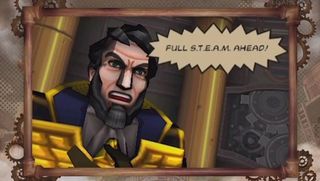
Strategy games can be a bit staid, and Code Name S.T.E.A.M. does a fantastic job of bucking those expectations. The odd team of steampunk weirdos really mixes up the gameplay to make for some impactful action, and the dense maps belie a raft of colorful design. With far more hits than misses, this game is a blast. Then again, I feel like I’m wasting my time praising it any more, because you were immediately onboard with the Lincoln vs. Aliens, right?
More info
| Genre | Action |
| Description | Under the authority of President Lincoln, you are to defend the planet from aliens using steampunk technology. |
| Platform | "3DS" |
| US censor rating | "Teen" |
| UK censor rating | "" |
| Release date | 1 January 1970 (US), 1 January 1970 (UK) |
Henry Gilbert is a former 12DOVE Editor, having spent seven years at the site helping to navigate our readers through the PS3 and Xbox 360 generation. Henry is now following another passion of his besides video games, working as the producer and podcast cohost of the popular Talking Simpsons and What a Cartoon podcasts.
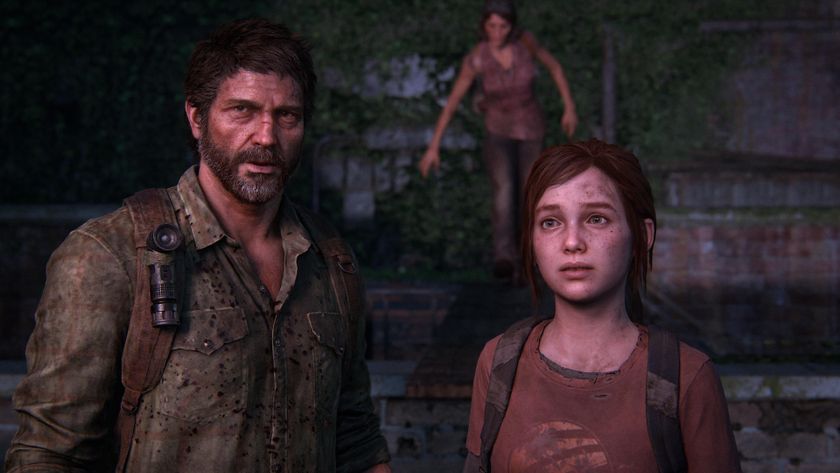
"Joel was right": The Last of Us director Neil Druckmann defends his character's decision at the end of the first game
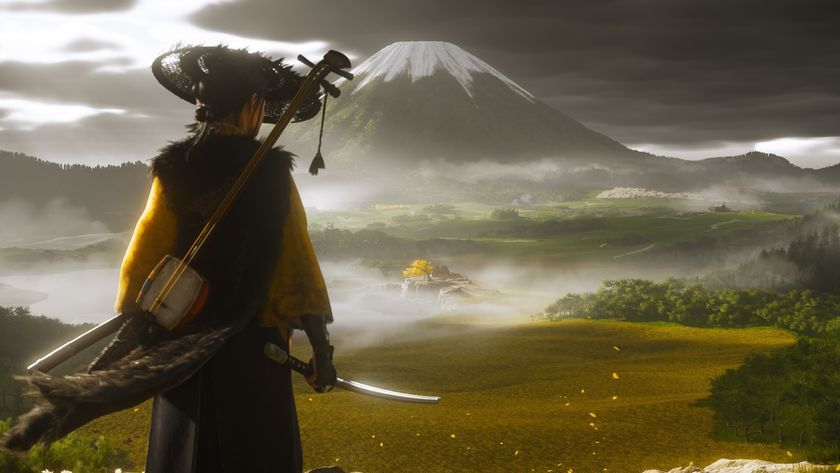
Ghost of Yotei will let you cut loose with dual katanas, ōdachi, and more new weapons when it launches this year, PlayStation confirms

Heat director Michael Mann says the first draft of his sequel script is finished and handed in to Warner Bros.
